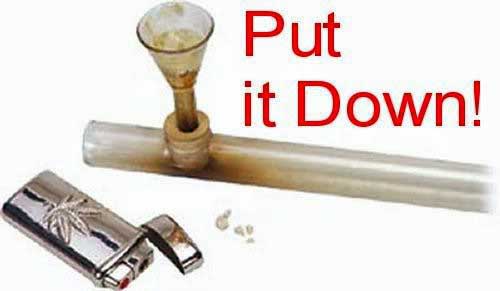In principle, I agree with nh. It truly is the end consumer that really pays all the taxes. But in many cases the consumer can reduce, if not avoid, taxes simply by not buying the goods or services offered by any particular seller.
Yep, they could always replace their own gas lines and boilers. *Grumpy, are you reading this, jump in and say something!" You are boiler king!
Just for your knowledge:
Metaphorical Generalisation
The use of metaphor is a dynamic phenomenon which enables us to generate new meanings from old. This process can be illustrated with the phenomenon of metaphorical generalisation. The view that metaphor is a principal avenue by which language progresses is based on the perfectly reasonable assumptions that language has to start somehow, and its initial concerns would have been with items in a speaker's immediate vicinity. A plausible origin myth is that the most primitive linguistic resources provided rudimentary verbal representations for solid sensible objects and for animal and (especially) human activities (Stanford 1936). Initially the resources of natural language would presumably have been fairly parsimonious. A problem is: how could the primitive linguistic resources, grounded in representations for sensible objects and expressions for basic activities, be extended to embrace the higher reaches of abstract thought that we now articulate through the rich resources of natural language? A fundamental mechanism for extending and refining language is metaphor.
Consider the verb 'run'. In its simplest and most basic sense it designates a human (and animal) activity. But through metaphorical extension it comes to be applied to objects which lie outside its basic reference class, such as rivers. The term began with a more limited scope or extension, and when talk first arose of rivers running it must have sounded bizarre. It might well have been objected, when the metaphor was green and fresh, that rivers cannot run: they have no legs. This is a banal example of so-called frozen (or dead) metaphor. Once metaphor freezes (or dies) it becomes an ordinary part of our literal vocabulary. So it comes about that rivers run, taps run and fences run, and they 'run' in a way which has generalised the meaning of this expression.
When we speak of fences 'running' around a boundary, for example, there is no suggestion of motion. The metaphor has generated a static sense of 'running'. Running has acquired the sense of following a path. That has amplified one aspect of the original idea of running, and suppressed other elements. Running is a simple activity which involves putting one leg in front of the other in a certain systematic, sequential and rhythmic fashion. It is a basic activity, but one nevertheless with complicated aspects, and by abstracting certain elements of the activity we are able to produce a generalisation of the basic sense of the word.
Metaphorical extension in this way, starting from the modest beginnings of describing macroscopic objects and simple activities, forges and reshapes concepts and thereby modifies language so that it comes to embrace an ever wider and more complicated repertoire of referents and activities. This process or generalisation and abstraction is a plausible explanation of how it is that we are able to start off with a decidedly limited or restricted set of verbal resources and extend them further, and reshape and refine them, to cope with the ever more complicated world which these very resources help us to create.
Semantic Depth
Metaphor, then, is not an alternative way of expressing common sense but a common way of achieving new sense. But how does metaphor change meaning? And why is the process problematic? A basic puzzle is that metaphors are typically literally false. Yet clearly there is some sense in which they are not only
not false, but can provide very valuable insights. But how can a sentence provide important insights if it is false? Evidently there must be some internal or underlying complexity which will explain this.
Expressions surely must have a deep as well as a surface level. It is at the surface level that we recognize the falsehood of the metaphor. Consider the example (taken from Searle 1979) 'Richard is a gorilla'. We apprehend immediately that this sentence is not literally true. Indeed if Kripke (1980) is right about the meaning of natural kind expressions, not only is Richard
not a gorilla, he is
necessarily not a gorilla. How can a
necessarily false statement provide us with an interesting and possibly useful insight?
The answer presumably is that the words have more complex structure than a naive Fregean account might lead us to believe, and this structure is revealed by the possibility of metaphorical use. Expressions may have a primary sense and a primary reference, but metaphorical use is able to activate secondary sense, and thereby generate a new extension for the expression. These subsidiary ideas and associations show that in addition to a primary sense and reference there is also a penumbra of additional associations or meanings. When the literal meaning is deactivated, because of the falsehood of the sentence, a switching happens and the secondary meanings latent in the penumbra are activated.
It will have been noted that I have been producing a steady stream of metaphors in the process of explicating metaphor. There is nothing viciously circular or objectionable in this procedure. In the case of metaphor, explication need not involve elimination.
The penumbra of associated secondary meanings is extremely interesting. Suppose that Mabel is a gorilla in the local zoo. When we say that Mabel is a gorilla, the associated meanings do not intrude at all. But when we apply the description to the man Richard, something interesting happens. As soon as we apprehend that the description is literally false, which usually happens immediately and unconsciously, the expression becomes semantically charged with secondary meanings latent in the associated semantic penumbra. Metaphors work typically by activating these subsystems of associations described by Black (1962), as a 'system of associated commonplaces', and by Mill (1875: Book I, Ch. 2, §5) as 'connotations'.
Another interesting fact is that the associated commonplaces are often not literally true of the objects from which they are derived. To describe someone as a gorilla might be to suggest that they are large, clumsy, hairy, and perhaps unpleasantly fierce or aggressive. That is one possible interpretation of this metaphorical description. But, thanks to ethologists such as Dian Fossey (1985), we know that gorillas in fact are quite gentle creatures, and by no means clumsy. What is important for the effectiveness of the metaphor is not what is true about gorillas, but rather the associated conceptions, or misconceptions, about gorillas.
These commonplaces or associations have a habit of hanging around, even after the literal meaning has changed. To be in a political wilderness is not to be in a pristine, unspoiled place of great natural beauty. Even a person who knows what gorillas are really like, may use and understand that word metaphorically in a way which respects not the actual characteristics of gorillas, but the common prejudices that are associated with them.
There are, in short, commonplaces or connotations associated with a large number of expressions, and this constellation of associated ideas provides the semantic charge which explodes when the expression is used metaphorically.



